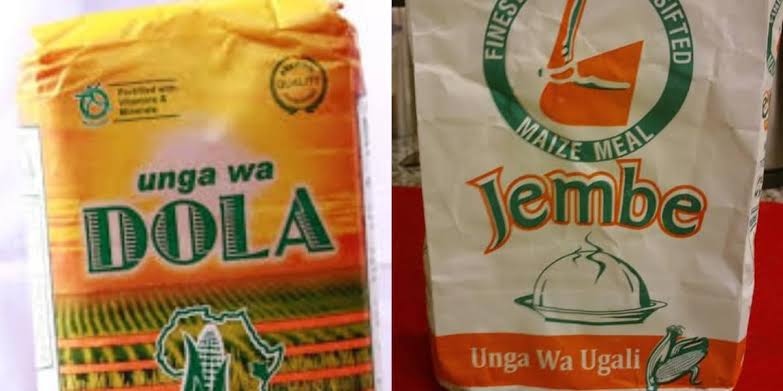Kenyans will have to pay an extra Ksh9 for a two kilogramme packet on high cost of maize.
The increase of sh9 and the taxes levied on maize imports is likely to spark a rise in inflation.
Millers are not getting sufficient grain at the market as farmers horde their produce in anticipation of high prices in future.
On the shelves, a two kilogramme packet of Jogoo brand retails at Sh109 from Sh102 last month, while Soko is retailing at Sh110 from Sh105 in April with Ajab going for Sh114 from Sh107 previously.
A 90kg bag of maize has now hit Sh3,000 from Sh2,500 a month ago as millers grapple for limited stocks in the market.
“Farmers are not releasing maize to the market after the restrictions were imposed on Uganda and Tanzanian maize, pushing up the cost of the raw material,” said Ken Nyagah, chairperson of the United Grain Millers Association.
Producers are anticipating that the price of maize will go up in the coming days following a low flow of imports from Uganda and Tanzania with Kenya having received a relatively good harvest last year.
Data from the Ministry of Agriculture indicated that growers have been holding 16.7 million bags of maize as at the end of April out of 17.7 million bags that was in the country.
High cost of food is set to put pressure on inflation, which dropped marginally to 5.76 percent last month from 5.98 percent a month earlier, in what the Kenya National Bureau of Statistics attributed to a decline in food prices.
In consumer basket, food and non-alcoholic beverage forms the bulk at 32.91 percent. This means a person with Sh100 will spend Sh33 on food.
Other key drivers of inflation include fuel and electricity. Last month the government froze an increase of fuel prices following an outcry from the public.
However, the price of petrol was increased in the latest review with a litre of petrol going up to Sh126 from Sh123 previously.
The supply of the produce in the country was disrupted in March when the government banned imports of maize from Uganda and Tanzania, citing high levels of aflatoxin.
However, the government reversed the directive two weeks ago and allowed the Tanzanian grain to the country following a bilateral meeting between President Uhuru Kenyatta and his Tanzanian counterpart Suluhu Hassan.

















